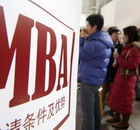Opinion
Qualitative change is necessary
By Sun Lijian (China Daily)
Updated: 2009-12-11 07:53
 |
Large Medium Small |
The Chinese government launched a large-scale, multi-layer economic stimulus package late last year in a bid to counter the emerging economic slowdown against the backdrop of the global financial crisis.
The government-dominated economic revival campaign, which consists of a proactive fiscal and moderately loose monetary policy to rejuvenate some crucial industries, as well as an expansive $586-billion stimulus package, has indeed boosted declining consumer and investor confidence, opened up the credit market to fund-hungry enterprises and helped the country achieve commendable growth.
It is understandable that the Chinese government has chosen some unconventional economic and market tools to boost its slowing economy at a time of an exceptional crisis. For instance, the government has tried to reduce overproduction in eastern coastal regions by expanding production in less-developed central and western areas to narrow imbalances in national economic development. However, the economic recovery following an avalanche of stimulus packages is not built on a solid foundation, as President Hu Jintao and Premier Wen Jiabao have pointed out on several occasions, and the fragile domestic market has not regained all its normal functions.
It has become increasingly manifest that these non-traditional and quantity-first economic stimulus measures have left a series of negative elements in the country's long-term economic development, which, if unresolved, will pose a major obstacle to the resumption of normal economic functions. That may give birth to an economic model that is short of vigor and could easily plunge the country into inflation or deflation, or a more terrible stagflation, and thus nullify the achieved economic results. Such consequences would possibly mean the country has to make more painstaking efforts to prevent the national economy from hitting bottom again. In this sense, the next year will be very important for the government to deal with the cumulative after-effects engendered by its expansive economic stimulus packages and try to shift the focus of the world's third-largest economy from quantity to quality to lay a solid foundation for the establishment of a healthier and sustainable development model.
At the annual tone-setting economic conference, the central government expressed its determination and commitment to transform itself from its previous role as a direct-investment and public-spending player into a services provider. The government, according to the conference, mainly aims to create an ideal environment for investment of non-governmental capital and offer an effective system guarantee for the inflow of good-quality foreign capital, such as for environment improvement, new energy and technologies, and development of high-end consumer goods. At the same time, the government plans to continue providing necessary infrastructure services for rural urbanization and industrialization and financial and educational guarantees for domestic enterprises to improve their competitiveness. Also, the country's investment in public facilities will be expanded and efficiency improved to step up the formation of the long-awaited social security network.
The conference also noted the central government's commitment to bring under control reconstruction, overproduction and "image projects", endemic in the previous extensive economic development model. All these messages boil down to the point that the central government is determined to bring to an end to the country's long-standing resources-exhaustive economic growth model and to build an intensive, vigorous and sustainable one.
The country's monetary policy next year is also expected to be more flexible and focus on more balanced development given delicate changes emerging in the domestic economic landscape.
Experience overseas shows that in the absence of a good economic environment, a country would pay a heavy price in the process of pushing forward scientific structural adjustments - ranging from the decline in employment to slowed economic growth and decreasing public trust in government-initiated reforms. Also, to mitigate social instability in the process of such structural adjustments, the government may probably have to abandon or slow down its previously mapped steps. Should that come true, it could plunge the country's economy into protracted throes.
Considering such uncertain factors involving China's economic development in the future, it is expected the central government will wield some unconventional measures and means next year in its implementation of a moderately loose monetary policy aimed at ensuring a certain pace of economic growth. At the same time, measures are expected to be taken to tighten bank lending to overheated industries, through steps such as interest rate policies or credit monitoring, to curb ever-surging bubbles.
The author is a vice-president of the School of Economics at Shanghai-based Fudan University.













